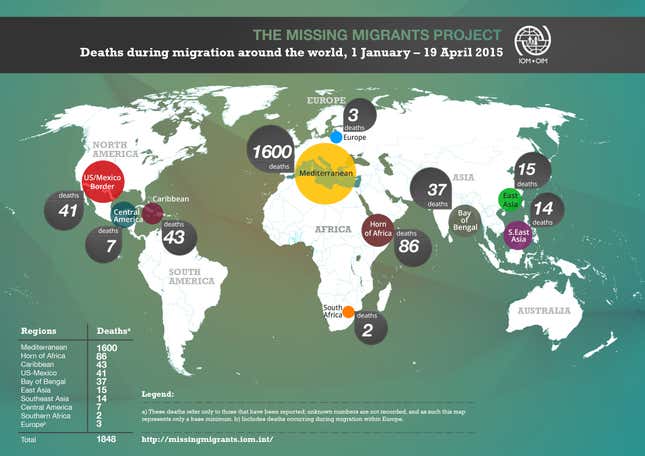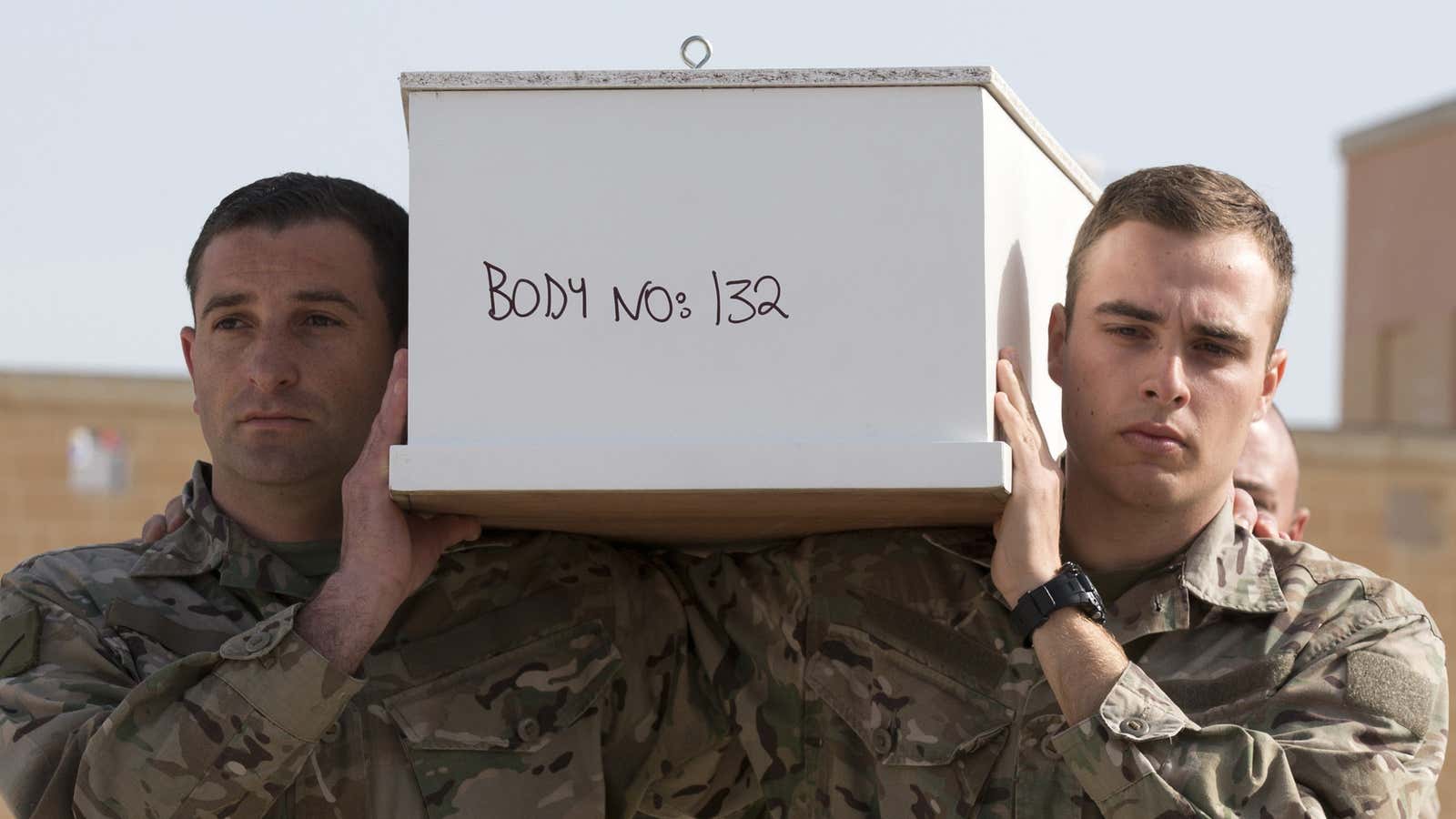As European leaders met in Brussels to discuss the continent’s migration crisis, 24 victims of the latest boat-crossing disaster on the Mediterranean were buried in Malta. That was just a small fraction of the more than 800 people believed to have drowned in the April 19 capsizing of a vessel carrying migrants from Libya to Italy.
EU leaders decided Thursday (April 23) that they would triple the funding for search and rescue missions in the Mediterranean, to target smuggling operations. They also agreed to send immigration officers to non-EU countries.
“We will take action now. Europe is declaring war on smugglers,” Dimitris Avramopoulos, the top EU official responsible for migration, reportedly said.
But some international organizations say such measures are not enough. “A tragedy of epic proportions is unfolding in the Mediterranean,” the United Nations and the International Organization for Migration (IOM) said in a joint statement about the plan discussed in Brussels. ”The European Union response needs to go beyond the present minimalist approach in [its] 10 Point Plan on Migration….which focuses primarily on stemming the arrival of migrants and refugees on its shores.”
According to IOM numbers, 1,848 migrants have died so far in 2015, the vast majority while trying to cross the Mediterranean. The tally is based on news reports, IOM spokesman Leonard Doyle tells Quartz; the IOM suspects the actual number is significantly higher.
The deaths so far this year represent a 30-fold increase over the same period last year, according to the IOM. If they were to continue at the same rate, IOM projects that the death total this year would reach 30,000. The majority of deaths are drownings that occur when migrants try to get from Africa to Europe on overcrowded boats operated by smugglers.

EU leaders and international organizations agree that saving lives should be the EU’s main priority.
But the UN and IOM are calling for a more comprehensive migration policy, including family reunification programs and programs for low-skilled migrant works, to create “sufficient channels for safe and regular migration.”
“The way to politically solve the problem of migration is to have a rational, managed approach to it, so that people don’t game the system, because they see the opportunity that they can go work, and come back,” says the IOM’s Doyle. ”At the end of the day, there is a declining population in Europe. They need migrant laborers, farm laborers, they need people to work in their supermarkets, to look after the older people.”




